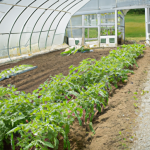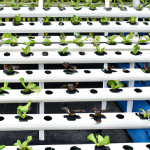Introduction
As urbanization continues to sweep across the globe, concerns about food security and sustainability have gained prominence. With limited space and resources, traditional farming methods struggle to meet the demand for fresh produce in urban areas. Enter urban farms – an innovative solution that brings agriculture into the heart of cities. In this article, we will delve into the world of urban farms, exploring their definition, benefits, and how they are shaping the future of sustainable food production.
What are Urban Farms?
Definition and Scope
Urban farms are agricultural operations that cultivate, process, and distribute food within urban areas. These farms can take various forms, including rooftop gardens, community gardens, indoor vertical farms, and vacant lot gardens. By utilizing spaces within cities, these farms provide an accessible source of fresh, locally grown produce.
Challenges and Opportunities
Establishing urban farms comes with its own set of challenges. Limited space, high land costs, and stringent zoning regulations often pose obstacles to their development.
However, innovative techniques like hydroponics, aquaponics, and vertical farming enable urban farms to maximize productivity within a limited footprint. Additionally, urban farms can foster community engagement, education, and job opportunities while reducing the carbon footprint associated with long-distance food transportation.
Urban Farming Initiatives
Across the globe, numerous urban farming initiatives are revolutionizing the way cities produce food. From large-scale projects like Brooklyn Grange in New York City, which operates over 2.5 acres of rooftop farms, to community-led initiatives such as the Detroit Black Community Food Security Network, urban farms are reshaping the urban landscape and enhancing food security.
Benefits of Urban Farms
Food Security and Fresh Produce Accessibility
![]()
Urban farms play a pivotal role in combating food insecurity and creating self-reliant food systems within cities. By reducing the reliance on external food sources, these farms enhance food security and provide residents with access to fresh, healthy produce year-round, regardless of geographic limitations or seasonal constraints.
Environmental Sustainability
![]()
By integrating agriculture into urban areas, urban farms contribute to environmental sustainability. These farms promote biodiversity, reduce carbon emissions associated with transportation, and mitigate the heat island effect in densely populated cities. Additionally, urban farms can help manage stormwater runoff, improve air quality, and reduce the reliance on harmful pesticides and synthetic fertilizers.
Community Engagement and Education
![]()
Urban farms act as vibrant community hubs, fostering social connections and educational opportunities. By involving local residents in the cultivation and maintenance of urban farms, these initiatives strengthen communal bonds, promote healthy lifestyles, and create employment opportunities. Furthermore, urban farms serve as educational platforms that raise awareness about sustainable agriculture, nutrition, and environmental stewardship.
Conclusion
Urban farms hold tremendous potential to address the challenges of food security, environmental sustainability, and community engagement in urban areas. Through inventive farming techniques and community-led initiatives, these urban oases are revolutionizing the way we produce, consume, and think about food.
By embracing urban farming, we can nourish our cities, foster resilience, and reshape our urban landscape into sustainable food hubs for the future.



